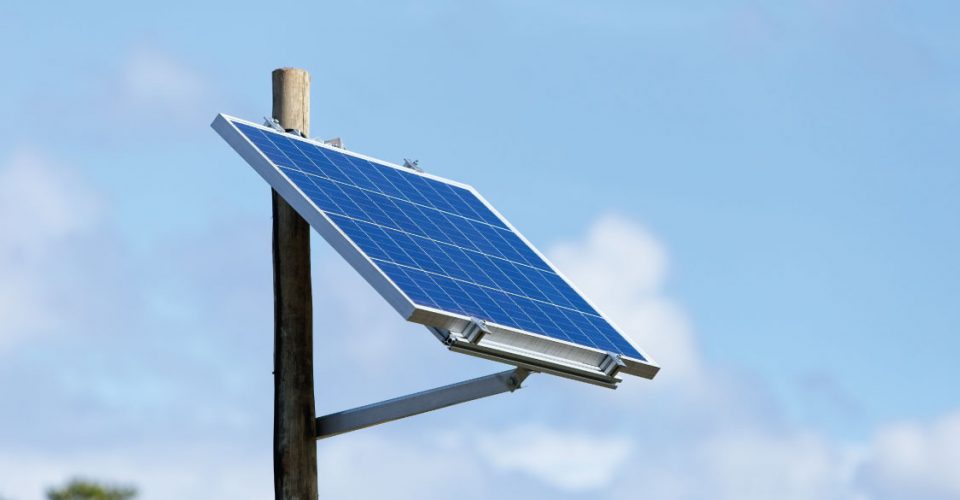Selecting the Right Off-grid Batteries for Your Solar PV System
If you’re planning an off-grid solar PV system, battery choice is a key part of the success of your project. You need to select the right capacity, the battery with best performance and balance quality and price to keep costs under control. Of all the elements that make up the average off-grid solar build, battery choice is the one that requires the most research.
If you’re planning your own off-grid solar PV project, this article will outline the primary considerations you need to take into account when buying off-grid batteries.

Off-grid Battery Types
There are currently two main types of off-grid batteries, lead acid or lithium. Lead Acid battery types come as flooded, sealed, AGM or GEL.
Sealed AGM Lead acid batteries are ideal for large currents, they charge quickly, offer high efficiency and are maintenance free. Lead acid batteries do not work efficiently at low temperatures and are slower to charge via generator than lithium in any condition.
Lithium batteries are very efficient, are lighter than lead acid, have a good cycle life and have a depth of discharge of >80%. They don’t work so well at low temperatures (<14C), and cost more than lead acid.
AGM lead acid batteries work best where maintenance may be impractical and where you are working with higher currents. Lithium work best in permanent structures with insulation and where space and weight are paramount or a generator is regularly required.
Flooded batteries are submerged in water to function and will need topping up every 30-90 days. Sealed batteries are more expensive but require zero maintenance.
Capacity and Power
The capacity and power delivery of off-grid batteries takes into account the amount they can store in kWh/AH. The power rating of the battery will tell you how much a battery can deliver in kW.
An off-grid battery bank should slightly exceed the daily generational potential of your solar panels while delivering enough energy to power the property for a full 24 hours.
Depth of Discharge
Depth of discharge refers to the amount of energy supplied by the battery in a given cycle. The maximum recommended depth of discharge for lead acid batteries is 50% while lithium can cope with up to and sometimes over 80%. Therefore, to avoid damaging lead acid batteries, you would need to increase the size of the battery bank.
Lithium batteries have a built-in management system to help prevent deep discharge and therefore, battery damage.
Charging Time
Charging time is exactly that. The time is takes to recharge off-grid batteries to 100% charge. Lithium batteries charge faster and have a lower self-discharge rate than lead acid.
Lead acid batteries take longer to charge and will lose around 5% charge every month when not used.
Round-trip Efficiency
Round-trip efficiency is a measure of how much energy is wasted between being generated and being used.
For example, if you generate 10kWh of energy from your panels and get 8kWh of energy from your battery, you have a round trip efficiency of 80%.
Battery Life and Warranty
Off-grid battery life is measured in cycles. A full cycle is a charge from the panel and a drain from the building. A cycle is usually performed daily while the system is in use.
As long as you don’t deep discharge your batteries, a battery will usually meet their warrantied life. Some manufacturers measure this in years and will come with a 5 or 10 year warranty while others will measure this in actual cycles.
Cost
Cost is always a factor in solar projects. You will need to balance the characteristics and requirements of your system against the most practical battery.
Lithium batteries are more efficient but more expensive. Lead acid are cheaper but less efficient. Some lead acid types can cope with higher currents while lithium have higher depth of discharge and cycle life.
As you can see, there is a lot to consider when selecting solar batteries. There is no ‘best overall’ off-grid solar battery, just the best type for your implementation, requirements and budget.
While we haven’t been able to point you towards a particular model of battery, we hope we have at least clarified the key points of selecting off-grid solar batteries. Should you need further assistance contact Sunstore Solar if not, good luck on your off-grid journey!

